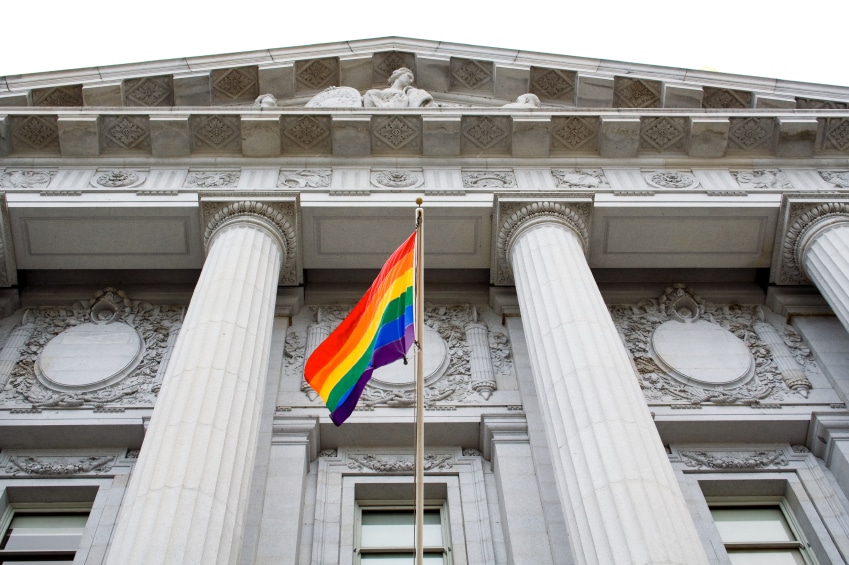The Equality Act, which would prohibit discrimination based on sexual orientation and gender identity, is back before Congress, but regardless of its chances at passage, employers are advised to review their policies and practices to guard against discrimination, attorneys who advise employers say.
The Democrat-majority House passed the Equality Act in 2019, but it wasn’t taken up in the Republican-controlled Senate then. Now, Democrats hold a slight edge, but the bill would need 60 votes to overcome a filibuster, meaning it would need support from a number of Republican senators.
Since 2019’s congressional action, the U.S. Supreme Court issued a ruling that directly affects employers. In June 2020, the Court ruled in Bostock v. Clayton that Title VII of the Civil Rights Act of 1964 prohibits discrimination based on sexual orientation and gender identity. Title VII covers employers with 15 or more employees.
The Equality Act would expand on the effect of that ruling, since the Act covers public accommodations and other areas in addition to employment. Also, the Bostock ruling was more limited in that it didn’t address issues such as how gender identity affects the use of bathrooms, locker rooms, and dressing rooms.
Ryan Frazier, an attorney with Kirton McConkie in Salt Lake City, Utah, says, if passed, the Equality Act would codify the protections set out in the Bostock ruling affecting employers. Even though employers already are bound by the Court’s interpretation of Title VII, passage of the Equality Act would matter because “it’s always possible that the makeup of the Supreme Court could change, and another challenge could reverse last year’s decision.”
Act Goes Further Than Bostock
Hannah Wurgaft, an attorney with Brann & Isaacson in Lewiston, Maine, points out the differences between the Equality Act and the Bostock ruling. While it was a landmark ruling for LGBTQ+ employees, the Bostock opinion is intentionally narrow, she says. The opinion states that the justices “do not purport to address bathrooms, locker rooms, or anything else of the kind” in the ruling.
“Some will interpret that as an invitation to bring more nuanced discrimination cases before the Court to push the boundaries of the decision,” Wurgaft says. “Passage of the Equality Act would likely stifle those efforts and restrict the Court’s ability to issue opinions inconsistent with Bostock. In our increasingly politicized world, the Act may also protect the Bostock decision from being overturned in the future.”
Nita Beecher, an attorney with FortneyScott in Washington, D.C., points out the Act’s passage also would allow the Equal Employment Opportunity Commission (EEOC) to provide guidance on nomenclature and pronouns as well as clarify the status of nonbinary workers.
Beecher notes all federal contractors have been obligated not to discriminate based on sexual orientation and gender identity because of an amendment to Executive Order 11246 signed by President Barack Obama in 2014.
Beecher also says the Bostock decision’s impact “was somewhat blunted under the Trump administration by its active pushback under all laws except Title VII.” The Trump administration issued religious liberty regulations and updated religious exemption guidance to allow religious or religious-based employers to discriminate against applicants and employees who did not agree with their religious views, she says.
President Joe Biden has issued an Executive Order stating all discrimination laws should interpret sex the way the Supreme Court did in Bostock, Beecher says.
Advice for Employers
Regardless of whether the Equality Act passes, Beecher says employers should review their policies and practices “to determine whether there are any barriers to employment for LGBTQ individuals including their benefit plans and access to equal facilities and decide whether training for supervisors and employees might be necessary to ensure inclusion of the LGBTQ community at work.”
Frazier also advises employers to make sure their handbooks and policies prohibit discrimination based on sexual orientation and gender identity. Another issue for employers to consider concerns state laws, Frazier says. Many state laws provide various levels of protection against discrimination based on sexual orientation and/or gender identity, so employers—especially those doing business in more than one state—need to pay attention to the laws as well, he says.
Wurgaft says her state, Maine, has prohibited discrimination based on sexual orientation, gender identity, and gender expression since 2005, so the Bostock decision didn’t have a major impact on employers there, but for employers in states without such laws, the ruling was “clearly a game-changer.”
Wurgaft adds “this area of law is in flux and is a high priority for the Biden administration.” She expects to see new federal guidance soon “with or without passage of the Equality Act.”
Tammy Binford writes and edits news alerts and newsletter articles on labor and employment law topics for BLR web and print publications.
The post House Revives Equality Act: What Employers Need to Know appeared first on HR Daily Advisor.
